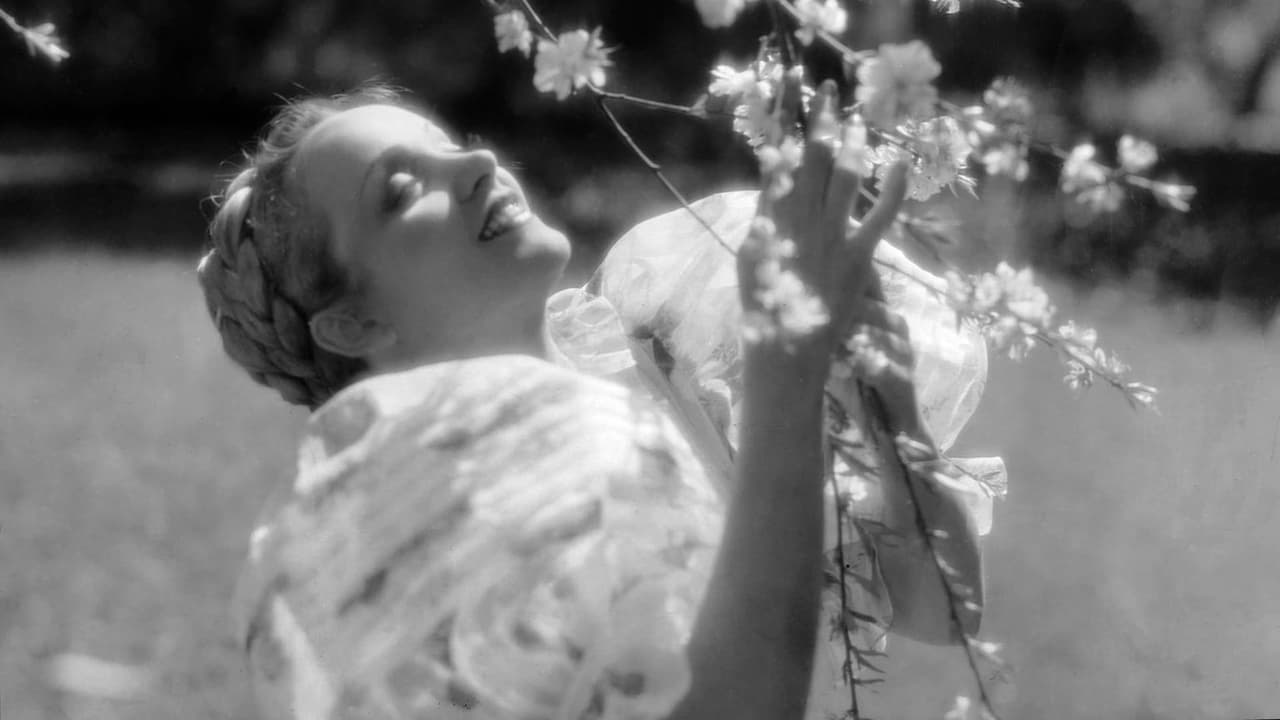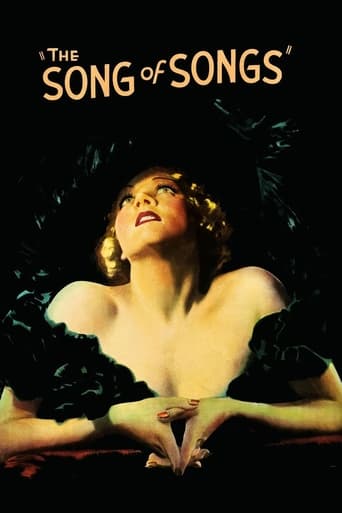

From my favorite movies..
... View MoreIt's funny watching the elements come together in this complicated scam. On one hand, the set-up isn't quite as complex as it seems, but there's an easy sense of fun in every exchange.
... View MoreThe film was still a fun one that will make you laugh and have you leaving the theater feeling like you just stole something valuable and got away with it.
... View MoreAll that we are seeing on the screen is happening with real people, real action sequences in the background, forcing the eye to watch as if we were there.
... View MoreMade in 1933 and Dietrich going nude to pose for a sculpture in this very good film.As her aunt, Alison Skipworth stole every scene she was in pretending to be so ethical, but winding up doing just about anything for liquor and a couple of bucks.Brian Ahearne is excellent as the sculptor who loves Dietrich, but is hesitant when it comes to marriage. Confused, he gives or consents to have Dietrich go with the elderly baron who she marries. He makes her into a charmed lady, but she is unhappy and caught escaping from a fire in the riding teacher's house, she becomes a wayward woman.Surprisingly there is no violence in the film where you would think there would be. The unexpected rather happy ending to all this was really surprising and well appreciated.Dietrich goes from a shy girl to quite a temptress in this worthwhile film.
... View MoreThis picture was a big reversal for Marlene Dietrich. Besides her first picture without Von Sternberg as director, it is the first one in which she goes from ingenue to demi-monde, instead of starting out as one. Here she is cast as a country girl who comes to the big city and befriends a sculptor of nudes (Aherne). She becomes his model, until he kisses her. Then the scales fall from their eyes and she becomes his lover. It is an extremely effective scene.Matters evolve (or devolve) as a Prussian Colonel (Lionel Atwill) also takes an interest in his model. Atwill, who normally plays diabolical and unsavory types, has one of his best roles as a lecherous soldier and plays it to the hilt. It is a riveting portrayal and commands your attention whenever he is on screen. Alison Skipworth, one of Hollywood's best character actresses, plays her dipso aunt in what is her best role since "Outward Bound".The storyline is not the thing here but it is fascinating to watch a master like Mamoulian at work and to watch Dietrich play against type, as well as watching the aforementioned Atwill in a performance that is sublime. Those are the surprises, not the plot - it's been done many times before and since.
... View More"The Song of Songs" (the apparently high-flown allusion of the title is actually far more key to the plot than it might seem) is a wildly uneven film. It cannot be said to be a great triumph; from the very start there were times -- frequently -- when I was not even certain if it could be said to be any good. And yet it is undoubtedly striking. For all its artificiality and cliché (has Tchaikovsky ever been worse massacred?) and sometimes laughable devices, I found myself caring, fiercely, what became of the characters.Brian Aherne's performance (far removed, alas, from his outstanding appearances only a few years earlier in British silent films) varied between the sensitive and the crassly wooden within the space of a single line-reading, never mind a single scene; the Baron, having won his wife from his rival and than won her consent, in two scenes of genuine conviction, takes an increasingly sadistic turn as soon as his ring is on her finger; Marlene Dietrich's innocent peasant girl sports painted brows and false lashes over her quaint bodice. The arty touches -- shrieking fiery trains, Dietrich tripping along a flowery lane or running on an idealised hillside, cuts between the girl stripping her stockings and the shadow slipping down a plaster nude -- come across as self-conscious insertions rather than an intrinsic part of the narrative, and I found the use of musical cues on this picture's soundtrack extraordinarily crude: in particular contrast to the seamless use of musical themes as comment in Mamoulian's previous pictures such as "Applause", "City Streets" and above all the joyous musical "Love Me Tonight".And yet.... And yet despite everything, despite the penny-dreadful swerves of the plot and cardboard supporting cast (who still make sterling efforts with the clichés they're given), the film can grip the viewer. Ever the master of sexual awareness without salacious charge, Mamoulian conveys very vividly the heroine's confusion and embarrassment at disrobing before the impatient sculptor, and then her dawning anticipation and dread of her wedding night with her elderly, lecherous bridegroom. Lionel Atwill achieves an impressive performance with the lines allotted to him as the Baron, rising up to the final pinnacle where he brings his wife and her former lover together with a constant flow of barbed taunts in a nightmare scene across the dinner-table.Miss Dietrich, required to portray a character who ranges from a gawking peasant to a tight-strung wife to a dissolute vamp, manages to put a sense of genuine feeling behind the most caricatured of façades. When she catches sight of her lover across a crowded café in mid-song, we can see and hear every aspect of her shock, shame and subsequent defiance simply in the way she continues to perform the tune. And her final scene, as the character's agony of spirit breaks through the brittle corrupt pose of the streetwalker, has a searing power that contrives to carry off even the histrionics of the sequence where she attacks her own statue with a handy sledgehammer.That statue, commissioned -- and paid for in advance -- before the lovers even meet, yet ultimately never delivered, runs like a fated thread through the entire story. It is the pressure to execute the commission he owes that brings the young sculptor in search of inspiration into the bookshop; it is the long process of posing that brings the couple together, yet the completion of the project that comes to symbolise to the girl her lover's betrayal, and the statue left alone in the studio that holds his memories of her. It is the placement of the sculpture that forms the excuse for the fatal confrontation, and it is the impossible ideals that it represents that embody the chasm between the lovers when they meet again. It is not until the cold marble perfection is broken that they are free; free to start again as ordinary erring humans, as if the Song of Songs had never been.I can't call this film an unqualified success. I'm unsure if I can even recommend it.And yet I'm not sure I can forget it.
... View MoreA romantic potboiler, in which a simple country girl, Lili (Marlene Dietrich) orphaned, goes to the city to stay with her aunt Rasmussen (Alison Skipworth), falls in love with Richard Waldow (Brian Aherne), a sculptor across the street. Her sense of what love could be is based on repeated readings of the Song of Songs, parts of which she recites ecstatically. But Lili marries Baron von Merzbach (Lionel Atwil) who has convinced Waldow he (the baron) can give Lili what he (the sculptor) can'tcomfort, luxury, education, music, polish, status. She's steely and still, but a jealous housekeeper engineers a situation that will appear to disgrace her when Waldow is visiting, and Lili walks into the trap to hurt him. He finds her in some sort of a high-toned night spot, takes her back to the studio, she is bitter, insisting she is dead and crying out what right does that (pointing to the statue) have to live while I am dead? She seizes a sledge hammer and breaks the maquette and falls down on the floor among the shards. Waldow picks her up and recites a bit of the Song and she softens, and he says something about a future. Here we get all the Dietrich modes in one packet: the wide-eyed and innocent young girl with a fluting, sweet voicethe passionate woman discovering lovethe frozen woman, who has made herself as cold as it is possible to be because nobody can hurt her that way---the cabaret cynic, wreathed in smoke, singing a slightly bawdy song with an arch, knowing lookthe tear-filled eyes of the thawing woman surprised by hope. All clichés of the first order, but she does them well, and that's what they paid her to do. She only sings one song here, and it sounds very much like something leaning in the direction of Weill & Brecht, a sweet melody lurching into some jazzy discordant moments.
... View More